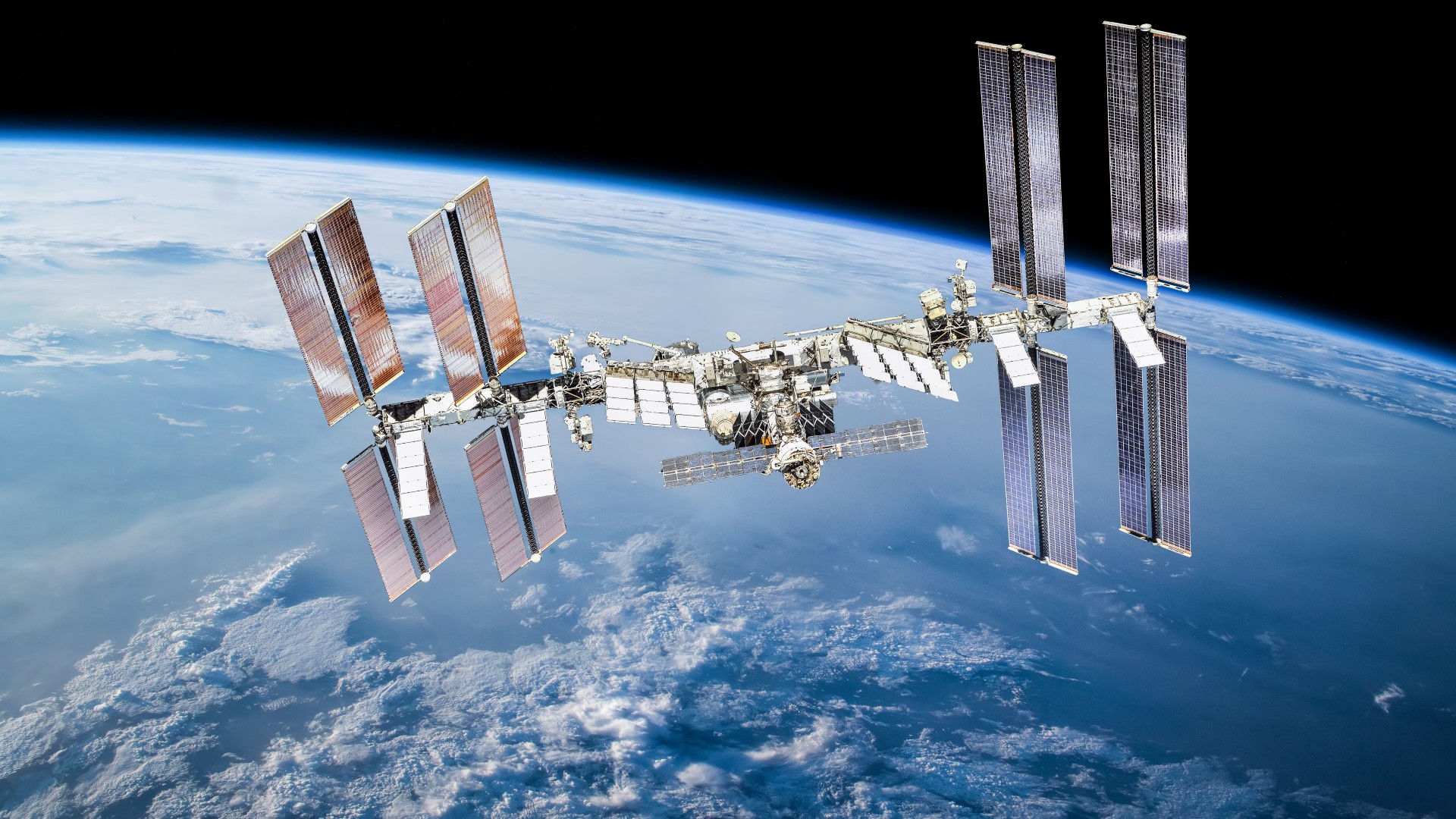
Astronauts aboard the International Space Station (ISS) have been besieged by a weird, possibly toxic smell after the arrival of a Russian cargo spacecraft.
The strange odor — reportedly smelling of spray paint — leapt out at Russian cosmonauts after the docking of the Progress spacecraft with the Russian Poisk module of the ISS on Saturday (Nov. 23), forcing them to close the hatch and put on protective equipment.
"After opening the Progress spacecraft's hatch, the Roscosmos cosmonauts noticed an unexpected odor and observed small droplets, prompting the crew to close the Poisk hatch to the rest of the Russian segment," NASA wrote on X on Sunday (Nov. 24).
Following the closing of the hatch, air scrubbers were activated to remove any contaminants from the space station's air, and by Sunday engineers in mission control deemed the air quality inside to be at normal levels.
"There are no concerns for the crew, and as of Sunday afternoon, the crew is working to open the hatch between Poisk and Progress while all other space station operations are proceeding as planned," NASA representatives wrote.
Related: ISS dodges its 39th piece of potentially hazardous space junk. Experts say it won't be the last.
Yet what exactly caused the smell, and just how hazardous it was, remains unclear. Reports from the website Russian Space Web claim that the fumes released were "toxic". Nonetheless, astronauts opened the hatch on Monday (Nov. 25) to find that the unusual odor had come from the "outgassing from materials" inside Progress's pressurized cargo section, NASA representatives told CNN.
This isn't the first time that the Poisk module has caused trouble for the floating laboratory's cosmonauts. According to a recent NASA report, a mysterious five-year leak to the module has intensified to the point that it could lead to the "catastrophic failure" of the station, said Bob Cabana, the chair of NASA's ISS Advisory Committee. Russian officials downplayed the claim, and so far little has been done to address the problem.
Regardless, not much time remains until the ISS is put out of commission. The station's operational life will continue until 2030, after which it will be pushed out of orbit by SpaceX to burn up in Earth's atmosphere.
Instead of building a replacement, NASA has said that it will leave the construction of successors to the station to private companies, and will instead focus on crewed missions to the moon and Mars.





